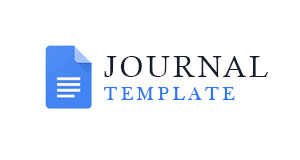CAN ISLAMIC FINANCE DRIVES ECONOMIC GROWTH ? : EMPIRICAL EVIDENCE FROM INDONESIA
Abstract
The purpose of this paper is to analyze the contribution of Islamic finance to Indonesian economic growth in view Global Islamic Finance Report which places Indonesia as number 1 globally in terms of Islamic Finance Country Index for the year 2019.
Using quarterly dataset (2013:1-2018:4), this paper study employs ARDL framework and bounds testing approach to co-integration to investigate the influence of Islamic finance on Indonesian economic growth. The results show that in the long run Islamic finance is positive and significantly correlated with economic growth of Indonesia. The result obtained from Error correction model reveal a positive and significant long run causal effect of Islamic finance on Indonesian's economic growth. However, Indonesian Islamic capital market is found not to have a significant long run causal effect on the country's economic growth. Bearing in mind this important contribution need sustainable efforts to expand the industry and its legal framework in view of the industry target where Islamic business units will become Islamic commercial banks by the year 2023.
Keywords
Full Text:
PDFDOI: https://doi.org/10.24952/tijaroh.v7i2.4593
Refbacks
- There are currently no refbacks.
Copyright (c) 2021 At-tijaroh: Jurnal Ilmu Manajemen dan Bisnis Islam

This work is licensed under a Creative Commons Attribution-ShareAlike 4.0 International License.








